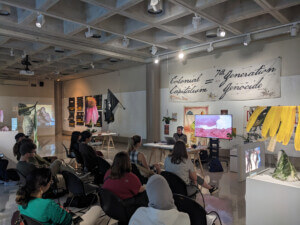Following a highly successful shift to a totally virtual experience in 2020 in response to the COVID-19 pandemic, ACADIA (The Association for Computer Aided Design in Architecture), once again held their annual conference online in 2021. Titled “Realignments: Toward Critical Computation,” this year’s proceedings marked the 40th anniversary of a conference that brings together practitioners, researchers, academics, and theorists to present and discuss new ways of leveraging software, computation, and fabrication toward the end of better architecture and design.
In light of pressing cultural questions on racial and social justice and inequality, Realignments sought to answer the question, “How can the computational design community critically address questions of emancipation, intersectionality, and our computational publics?”
The conference was co-chaired by Behnaz Farahi (California State University Long Beach), Biayna Bogosian (Florida International University), Jane Scott (Newcastle University), Jose Luis García del Castillo y Lόpez (Harvard Graduate School of Design), Kathrin Dörfler (Technical University of Munich), June Grant (blinkLAB), Stefana Parascho (Princeton University), and Vernelle A. A. Noel (Georgia Tech). Cameron Nelson (Cornell) served as the Conference Project Manager.
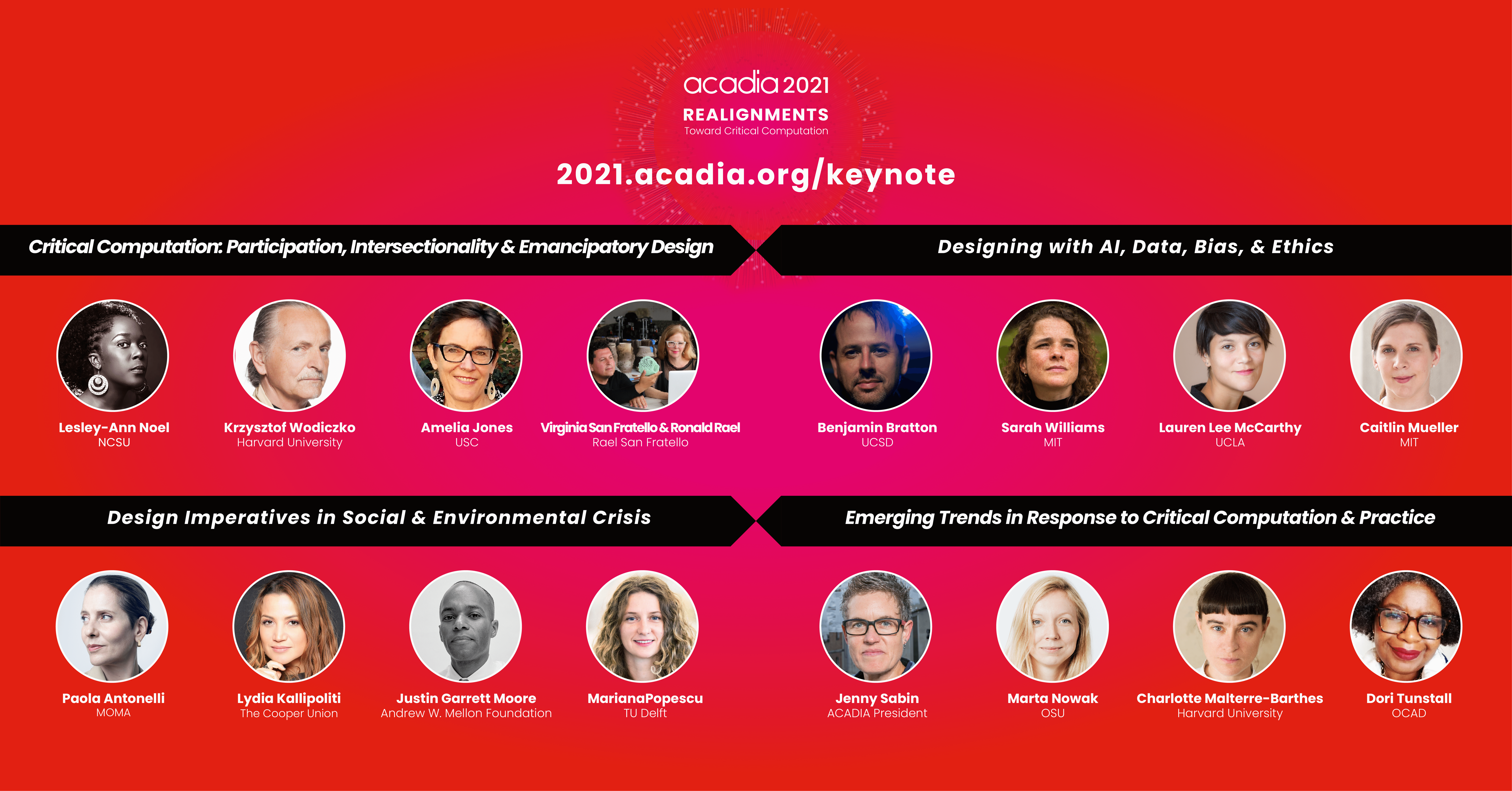
Unlike previous iterations, interactive workshops were not held concurrently with the conference but several months earlier, taking place September 11 and 12 online. In keeping with the tradition of ACADIA, research paper presentations covered a plethora of exciting projects and topics, including novel approaches to CNC milling and 3D printing, new tasks for robotic arm fabrication, and continued inquiries in the emerging field of artificial intelligence and machine learning within architecture. While taking nothing away from the importance of the research in the papers portion of the event, perhaps the most notable part of the event was the shift that occurred with the keynotes.
Keynotes migrated away from typical ACADIA-n research around robotic arms, advanced fabrication techniques, novel form-finding, new material applications, or project presentations, instead stepping back and talking about more fundamental issues of data, bias, ethics, and inclusivity. This was a welcome response to a world that has changed so drastically from the last in-person conference in 2019 (“Ubiquity and Autonomy” at the University of Texas at Austin School of Architecture), where the celebrity headliners were Thom Mayne, Pritzker Prize-winning founder of Morphosis, Dominique Jakob, co-founder of Jakob+MacFarlane, and Harlen Miller, senior architect at UNStudio.
Instead, the first keynote, “Critical Computation: Participation, Intersectionality, and Emancipatory Design,” featured Lesley-Ann Noel, who presented on emancipatory design and design thinking; Amelia Jones, who countered the inherent whiteness and neutrality that design and tech often presuppose, and notes from Kzysztof Wodiczko, Ronald Rael, and Virginia San Fratello. Rael and San Fratello offered work closest to traditional architectural practice, focusing on sustainable material technologies with their Cabin of 3D-Printed Curiosities, an accessory-dwelling unit in Oakland, California, with a 3D-printed ceramic tile facade and a 3D-printed translucent bioplastic interior. Another project by Rael and San Fratello, Casa Covida, combined 3D printing with indigenous and traditional adobe earth building material to create three open-air, truncated-conical rooms—one for cooking, one for bathing, and one for sleeping. In a panel discussion at the end of the session, Rael described the impact of their work by saying, “we don’t work in utopias or dystopias; we work in realites.” He emphasized that designing tools, like the open-source app Potterware they developed in Grasshopper from which Casa Covida emerged, that allow people to empower themselves can go much further than single buildings or spaces.
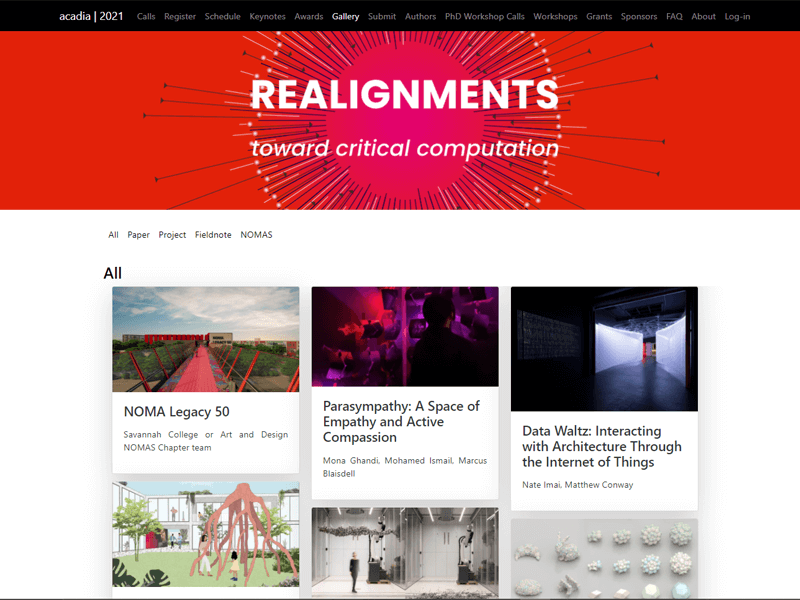
Diving into a whirlpool of hot-button technological issues, the second keynote session discussed AI, data, bias, and ethics with Benjamin Bratton, Sarah Williams, Lauren Lee McCarthy, and Caitlin Mueller. Acknowledging that much of the discussion and skepticism around artificial intelligence has been concerned with surveillance and data privacy issues, Bratton stressed that it is important not to confuse “implementation for ontology,” or that what AI is currently used for does not necessarily mean that is what AI is. Instead, Bratton argued that the problem with artificial intelligence and its relationship to surveillance capitalism is not artificial intelligence itself but “romantic, narcissistic, bourgeois liberal individualism itself” that focuses on individual consumer behaviors.
Discussing whether the most important data involve people at all, Williams and Bratton concluded that while some of the most important social and political data (carbon, electricity, land-use flows) include humans, “modeling individual human carbon footprints is not going to lead to industrial decarbonization.”
The third keynote, which included Paola Antonelli, Justin Garrett Moore, Mariana Popescu, and Lydia Kallipoliti, discussed “Design Imperatives in Social and Environmental Crisis.” Touching on myriad issues and projects from the XXII Triennale Milano in 2019 (Broken Nature) such as slave ship engineering and redlining maps, the KnitCandela project by ZHA Code, and the problem of upcycling, the speakers all focused on the role of imagination in social and ecological issues.
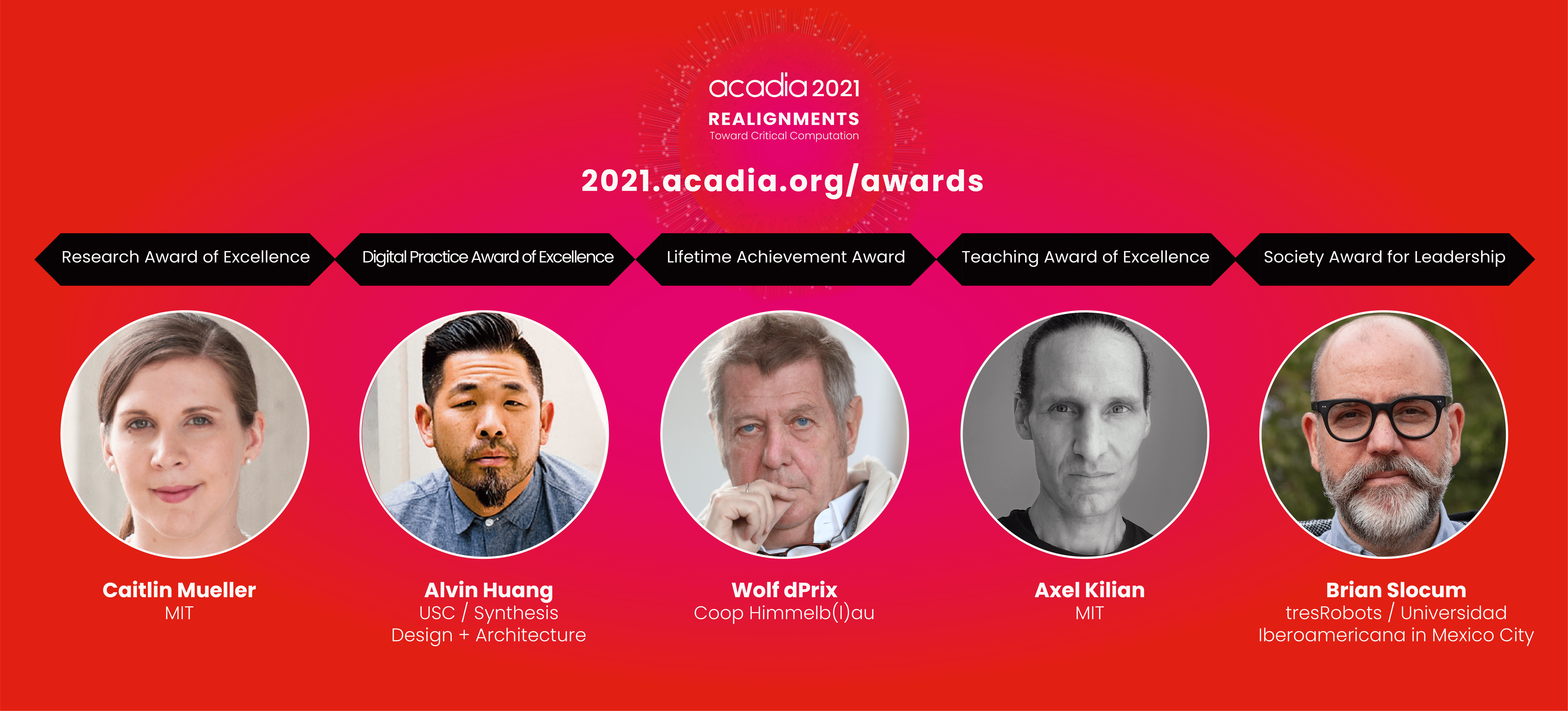
Perhaps most profoundly, Moore looked at the engineering and ingenuity of slave ships as a nefarious exercise in computation and design that radically transformed the world. Moore asked us: “What are some other imaginations that could transform the world? What is our counter to that?” After critiquing the famous sustainability book Cradle-to-Cradle by William McDonough for reducing ecological systems down to an optimized capitalist mode of production, Kallipoliti drew a connection between the slave ship manifests and a current atrocity of design, the dense and windowless proposal for Munger Hall at the University of California, Santa Barbara.
The final keynote panel, “Emerging Trends in Response to Critical Computation and Practice,” led by Jenny Sabin, heard from Charlotte Malterre-Barthes on a global moratorium on building construction in response to COVID-19, Martha Nowak on circulation simulations and drone robots, and Dr. Dori Tunstall on “tech nightmares.” Speaking on decolonizing design and tech, Tunstall said that the narrative of progress is deeply embedded in technology, but the notion of progress must be probed: progress for whom? Tunstall pointed out that software that we use and take for granted is often based on master/slave relations. She also made the connection that dystopian “tech nightmares,” the stuff of science-fiction films like iRobot, are rooted in white fears of the slave rebellion; the coup d’état of the machine that looms in the white imaginary is based in racial animus. We must change the underlying consciousness of technology, she concluded.
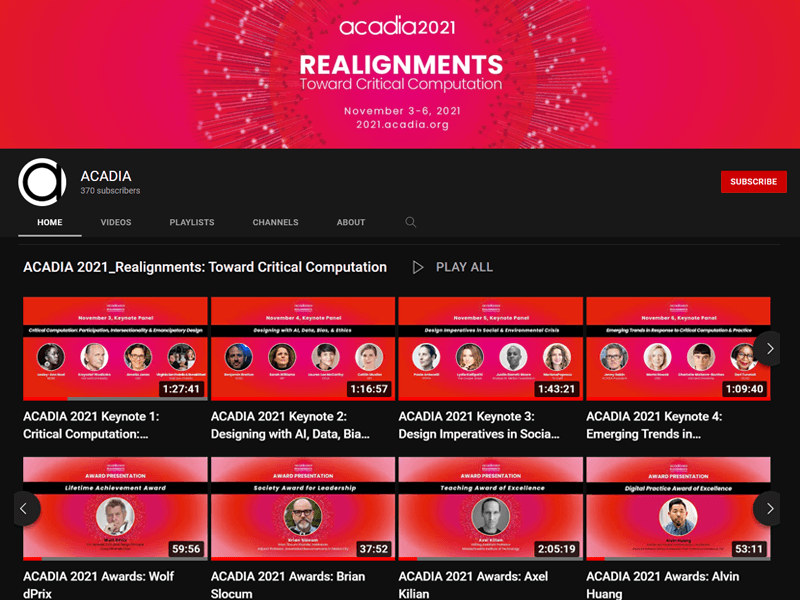
All told, ACADIA 2021 was a wide-ranging and exciting culmination of many branches and voices of research and design in an accessible, online format. The 41st edition of ACADIA is slated to return to in-person programming in the fall of 2022 at The Weitzman School of Design at The University of Pennsylvania.








